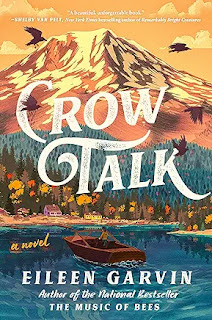Again and Again is the story of an 1100-year-old man who by this point is pretty bored with life, but then who can blame him for feeling that way. Honestly, I suppose most 1100-year-old people are probably feeling the same way Eugene feels right now. Eugene's latest body, he tells us, is 106 years old, and he's feeling every one of those 106 years deep down in his bones. He's been living in an assisted living facility/nursing home for a long time, and can barely remember the last time he's had a visitor. There's just not a whole lot left for Eugene to experience this time around. And he's tired. The only reason he's still hanging around is in hope that his one true love, who is also 1100 years old, might cross paths with him again one day. Every new generation the really, really old man lives just makes it more unlikely that his longed for reunion will ever happen.
Then someone new enters Eugene's life, and even though it's not the woman of his dreams, Eugene's world does change for the better. Eugene barely speaks to the staff of the facility anymore, much preferring his own company to smalltalk with people he doesn't care to know in the first place. But Angel, the new guy who cleans Eugene's room several times a week is such a friendly young man that Eugene feels terrible about snapping rudely at him. So almost before he realizes it, Eugene is telling Angel about his past lives (including the one in which he was a common house cat for a few years) along with what the last 106 years have been like for him.
Angel, much like the reader, is a bit skeptical about what he hears from Eugene, but a surprising thing happens. Angel and Eugene start to bond in unexpected ways - they become best friends - and they are entirely different people when they are together. Angel begins coming to Eugene for love-life advice that might help him win back his own true love - and it starts to work! Eugene has an audience for his stories, someone so hooked on the adventure stories that Eugene doesn't even care all that much whether or not Angel actually believes any of them.
And when you hear the stories that "Geno" tells Angel, you will be as hooked as Angel was on finding out how they end.
Just as Angel had to do, readers will have to decide for themselves just how much they want to believe of what Eugene has to say about his successive lifetimes. It's true that there are cracks in the stories, a couple of which you could drive a car through, but Eugene doesn't shy away from addressing each of them in turn. But whether the old man is 1100, or 106, or 80 years old is not what really matters. Again and Again is a story about an unlikely, some might say impossible, friendship between two very different men - and the unanticipated positive impact that friendship has on both of them. Readers leave the world of Again and Again happier and more optimistic than they entered it. And it's about time (pun intended) that happened.









































